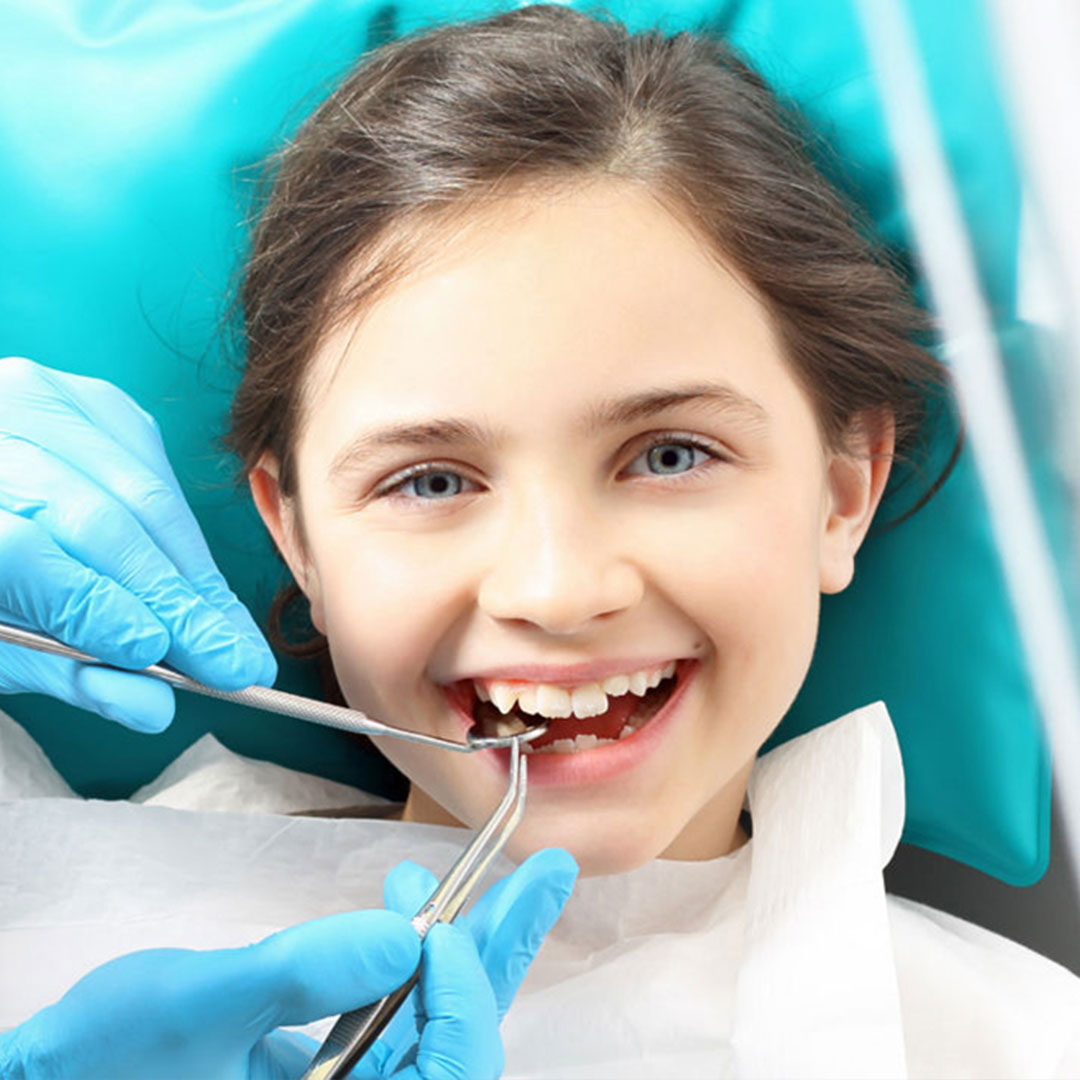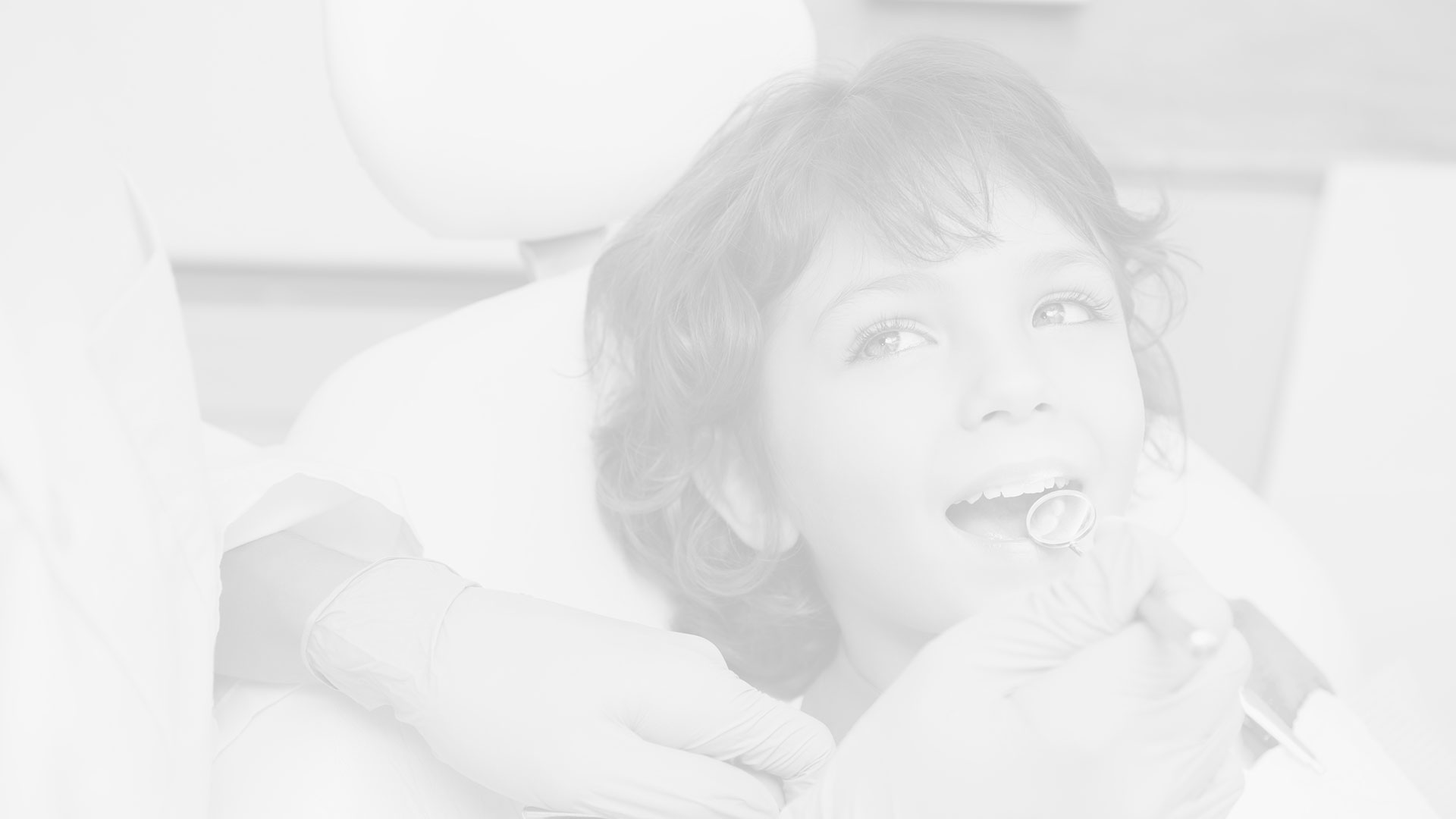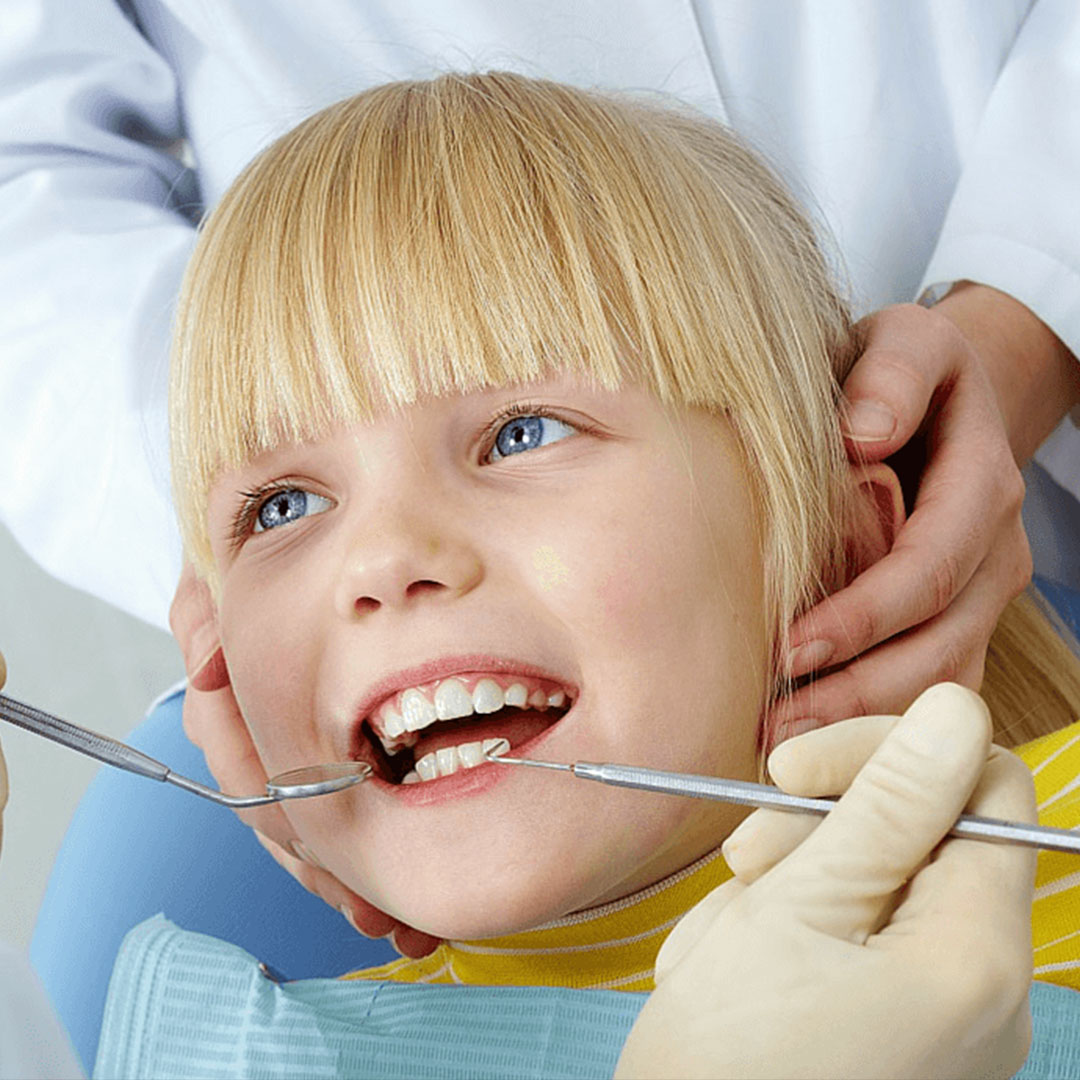- Best Dent Clinic
- +90 (216) 575 55 77
- +90 850 522 65 34
- info@bestdent.com.tr
PEDIATRIC DENTISTS

PEDIATRIC DENTISTS
However, if your child has a cavity or another dental problem that needs attention, we do provide a full range of restorative services, such as fillings, frenectomies, pulpotomies, crowns, space maintainers, and extractions in our office. We understand that undergoing dental treatment may be challenging or even scary, for some children. Understanding that every child may handle this differently, we offer many treatment modalities to make these services easy for your child. We offer nitrous oxide analgesia, local anesthesia, laser dentistry, oral sedation and treatment under general anesthesia. Also, your child can watch television or a movie while the treatment is being performed in our specially equipped operatories. These modalities often make the visit much more pleasant for the child, and allow us to deliver quality care in a safe, friendly environment. The dentist will review these options and make a recommendation specifically for your child in order to provide the most comfortable experience.
Our office can also fit your child with an athletic mouth guard for sports. Our mouthguards are made specifically to your child’s mouth, by taking an impression, so they will have a better fit than those that can be bought in stores. Having a mouthguard that fits is crucial in protecting the teeth, jaws, and soft tissue structures while playing sports. Without a mouthguard, accidents such as displaced and broken teeth, lacerations to the soft tissues, and jaw fractures occur much more frequently. We recommend these mouthguards be used for sports such as soccer, baseball/softball, hockey, football, basketball, lacrosse, and any other sport which could result in accidental injuries to the mouth. We can even put your child’s initals or roster number on the mouthguard, and make it in your team color!

Expecting Parents/Newborns
We recommend that you bring your child to a pediatric dentist by the eruption of their first tooth, or by their first birthday. Teething for many children can begin as early as 3-4 months of age, but can differ for every baby. We strongly recommend beginning cleaning the teeth as they erupt. Our doctors can counsel parents on how to do this. We will also review with parents that it is important to clean the teeth after night time feedings, so as to prevent dental decay. We will monitor growth and development of your child’s dentition starting at this young age. We also provide your child with a “dental home,” so you will have somewhere to call in the case of any unexpected emergencies.
Nursing your newborn child is the most natural way to bond with your child. When a tongue-tie interferes with your child’s ability to latch, it can be traumatic for both mother and child. A simple procedure called a lingual frenectomy can be performed in our office. All of our Laser Certified Pediatric Dentists have specialized training that allow us to quickly remove the tight tissue band under the tongue. This allows for more movement and can immediately improve your child’s ability to nurse. Often this procedure can be performed at the initial appointment with only a topical anesthetic. The change is drastic and rewarding for all parties.
We strongly believe that starting early with the pediatric dentist will help provide you and your families with the knowledge to help your baby have healthy teeth from the start. We also feel it will help your child become familiar with the dentist at an early age, and excited to come see us as they grow!

2-5 Years
This is a very important time in your child’s dental development as most children have all of their baby teeth in by age 2. This is when we put special focus on forming good habits, both with brushing and flossing, and with a healthy diet. We take time in our appointments at this age to review brushing twice a day, with a grown-up’s help, of course. Many children in this age group cannot spit out their toothpaste, so we review the importance of the type of toothpaste to use and when to switch to a fluoride toothpaste. Our team of doctors and hygienists take special time in this age group to review how to brush correctly and the importance of flossing, even at this early age! We have lots or tricks to help parents become skilled at this!
The importance of healthy foods and snacks is stressed during appointments for this age group. We find that the leading causes of cavities in this age group are the sticky-chewy (gummy) things in their diet, snacking all day, and sugary drinks, such as juices. We take the time to explain to parents which foods to avoid or limit, and why. We will also give a list of healthy alternatives.
Going to the dentist should be fun and easy! Cavities are preventable and we want to help parents and children have a great experience and look forward to coming to see us!
6-12 Years
This age group is an exciting time in a child’s dental career. Around age 6, children begin to lose their first “baby tooth." In visits to our office during this age, we spend time reviewing these changes with parents and patients. Most children lose 8 teeth between the ages of 5-8 (on average). These include the upper and lower incisors. Around this age, children acquire their first set of permanent molars. The entire set of “baby teeth” generally fall out by the age of 12. During routine check-ups in our office, the doctors will evaluate the health and development of the new teeth and talk about the possibility of dental sealants, when indicated.
During this age we will also encourage starting our child patients to become a little more independent with home care. Most children have the coordination to adequately brush their own teeth by around age 8 (when they can tie their own shoes.) Every child masters this in their own time, and we will help with easing your child into this independence, while ensuring their mouth stays clean and healthy!
We also look more closely at jaw structure and potential orthodontic concerns during this age. Orthodontic referrals are made based on the structure and function of your child’s jaws, not just straight or crooked teeth. The timing of orthodontic needs is different for every child, and our doctors will be paying close attention to this as your child grows.
By the teenage years, most of our patients have taken over their own dental health. The primary, or baby teeth have in most cases, already all fallen out. Orthodontics may be complete for some kids by this point, or for some cases, braces are just going on. We take time in our appointments to guide this age group in their independent home care. By this age, most teenagers have already developed the skills for taking care of their teeth, but some still need reminders! We review the importance of brushing twice a day and flossing. We try to instill these important techniques that will help them have a healthy smile and teeth that will last a lifetime.

We take special care to go over important dietary factors as well. In many active teenage lifestyles, it is just easy to grab something quick to eat or drink, but healthy choices are important, as they are often making these choices on their own. We counsel them on the importance of avoiding sugary drinks, including some sports, soda, and ice tea or lemonade. We also review the dangers of tobacco use, and its impact on teeth.
Finally, as many of these teenagers and young adults are playing at a very competitive level of sports, we remind them of the importance of wearing a mouth guard to protect teeth from injuries.
As these patients, graduate off into the adult world after high school, we hope they are leaving with the education and good habits that will keep their teeth healthy for their entire life!

Special Needs Patients
Our Board Certified Pediatric Dentists have advanced specialty training in clinical dentistry for infants, children, and for those with special needs. Our training not only encompasses clinical dentistry, but also early childhood development, behavior management and child psychology to ensure superior quality care. We know that going to the dentist can be challenging and even stressful for a family when a child has special health care and behavioral needs. We are able to customize the experience so that it works best for your child, in a comfortable and safe environment. Our doctors and dental team will be able to provide multiple treatment modalities for the patients who need dental treatment that may not be able to be performed in the traditional way.
Custom Mouthguards
Our office can fit your child with a custom athletic mouthguard for sports. Our mouth guards are made specifically to your child’s mouth, by taking an impression, so they will have a better fit than those that can be bought in stores. Having a mouthguard that fits is crucial in protecting the teeth, jaws, and soft tissue structures during sports. Without a mouthguard, accidents such as displaced and broken teeth, lacerations to the soft tissues, and jaw fractures occur much more frequently. We recommend these mouthguards be used for sports such as soccer, baseball and softball, hockey, football, basketball, lacrosse, and any other sport which could result in accidental injuries to the mouth. We can even put your child’s initials or roster number on the mouthguard, and make it in your team color! Because we feel so strongly about the importance of mouthguard use in sports, we can even set up a time for your entire team to come and be fit with our professional mouthguards. Please call our office for more information.
- At what age should my child's first visit to Where Smiles Grow be?
Your child should see the dentist when the first tooth erupts, or by their first birthday. We offer complimentary dental screenings for children 18 months and under. An early visit to the dentist provides parents the information that they need to care for their child’s teeth. We will guide parents on how to deliver proper home care and also review dietary factors that can lead to cavities. Starting early at the dentist helps the child become accustomed to these visits, and also establishes a dental home for your child in the case of a dental emergency.
What happens during my child's first visit to the dentist?
At your child’s first visit to our office, our well trained team will help navigate you and your child through a comfortable, informative examination appointment. Because we want to get to know you and your child well, we will be asking lots of questions regarding your child’s medical history, past dental history and current home care and dietary conditions. One of our board certified pediatric dentists will perform a thorough exam of your child’s mouth, head and neck region. We fully understand that every child may have a different level of anxiety and/or comfort with this, and we have many strategies to help make this as pleasant as possible. Depending on your child’s level of comfort, we can then decide if he or she is ready to have their teeth cleaned by the hygienist. Radiographs are also a possibility depending on your child’s age, the results of the exam, and risk for caries (cavities). All of this will be thoroughly discussed by our team and the doctor at your visit.
- Will I be with my child for their appointment?
We feel strongly that parents should accompany children throughout their examination appointments. These appointments are important for sharing information about how to have healthy teeth. We want to be able to answer all of your questions and provide useful tips on homecare, healthy foods, and your child’s dental health.
- Why should my child see a Pediatric Dentist instead of our regular family dentist?
Pediatric Dentistry is a specialty of dentistry that focuses solely on the oral health of infants, children, adolescents and young people with physical and mental challenges. After completing four years of college, and four years of dental school, a pediatric dentist must then complete 2-3 additional years of training specifically related to these young patients. During the pediatric dental residency, there is intense training in growth and development, child psychology, behavior management, and special health care needs. Our mission is to use our training and expertise to educate patient-families and provide excellent and appropriate dental care to children of all ages and special needs.
It's impossible to overstate the emotional, social and even professional benefits that smiling with confidence can give you. If you find you cover your mouth when you smile, or even hold back your smile because you don't want to show your teeth, you should consider what cosmetic dentistry — the art of smile enhancement — can do for you.
There's so much that can be done these days to improve the appearance of a person's smile — at any age. From powerful, professional whitening treatments to amazingly realistic porcelain veneers to state-of-the-art dental implants, there's a wide range of exciting possibilities.
The first step in any smile makeover is a thorough dental examination to make sure that your cosmetic problems really are just that, and not a sign of underlying dental disease. Once your health has been established, your smile can be cosmetically enhanced in a variety of ways.